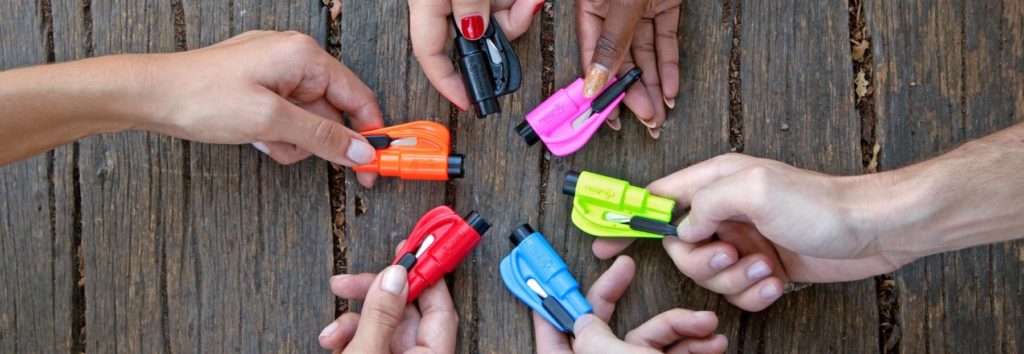Written by Adrienne Erin
Driving your car may seem like such a routine task that it’s easy to overlook the potential of an emergency. The types of emergencies one can experience while driving are plentiful, including engine failures, flat tires, fires, weather-related havoc and accidents. Properly preparing for any emergency requires that you store essential items in your vehicle. Here’s a list to get you started.
Spare Tire, Tire Jack and Tire Iron
It’s always useful to carry a spare tire that’s in good condition, along with a tire jack and tire iron. Flat tires are one of the most common issues a driver can experience. Having a tire jack and tire iron ensures even a solo driver can get the job done, so they can fix the issue smoothly and quickly.
Also recommended are a tire inflator and sealer, if you’d prefer a temporary fix that can get you to the auto shop.
Flashlight, Duct Tape and WD-40
Available at most retail locations, duct tape and WD-40 can prove especially useful for leaky vehicles or otherwise clunky machinery. With the process aided by a flashlight, the short fix can prove just enough to get your vehicle to an auto shop. Read about some duct tape/WD-40 vehicle survival stories here.
Jumper Cables
Regardless of how durable your car is, dead batteries happen to everyone. Your best bet in this scenario is to jump-start your vehicle. You’ll need jumper cables and a fellow driver with a vehicle to lend a hand so you can charge your battery via their car’s power. You can also purchase an emergency battery booster if you’d prefer not to rely on the help of a stranger.
Warmth Essentials
Materials to keep warm, such as coats, blankets and a pair of warm gloves, weigh little and don’t take up much space, so there’s no excuse not to store them in your car in case you’re stranded in the cold for an extended period. They could mean the difference between a comfortable wait and frostbite.
Resqme Tool
The resqme tool is designed to serve as a rescue tool during vehicle entrapment, in case you get trapped in your vehicle during a car crash or malfunction. The tool can cut you free from tangled seat belts and break windows with its strong blade and spring-loaded spike, respectively. It’s a small tool every driver should have.
Water, First Aid Kit and Non-Perishable Food
In the case of an injury, be sure to purchase a first aid kit to help alleviate any injuries or pain caused by an accident. Similarly, you should store energy bars or other non-perishable food items in case you’re stranded or tipped over. This is in addition to water; you should have two bottles stored at all times, prioritized above food.
You never know when an on-road emergency may happen, so be sure to stock your vehicle as soon as possible with the items above to ensure the safety and recovery of you and your loved ones in the case of any emergency.

